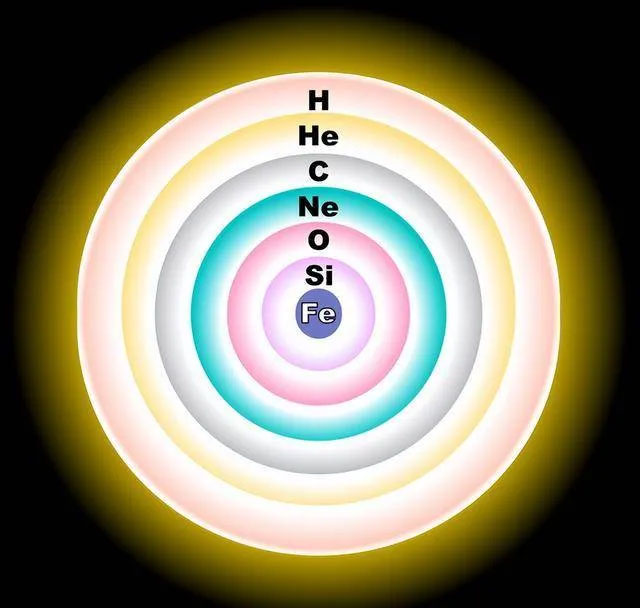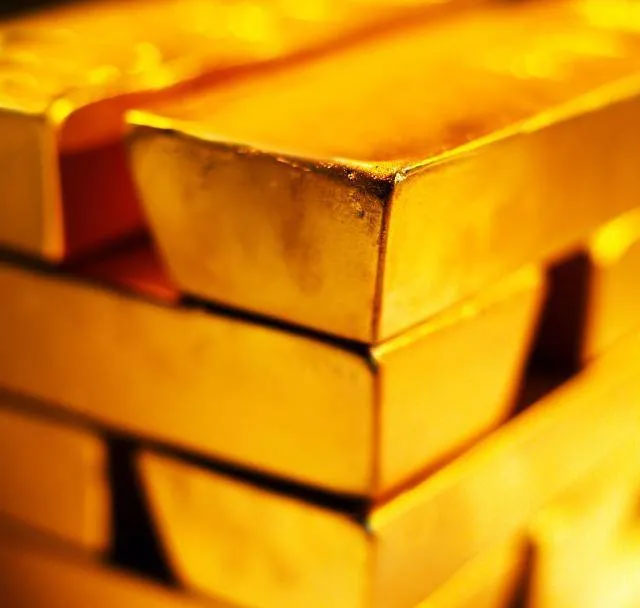Where does the gold in the Solar System come from? Where is the most gold in the Solar System?
Where is the most gold in the Solar System? To answer this question, we first need to find out where the gold in our Solar System comes from.
According to popular opinion in the scientific community, the universe we live in was born about 13.8 billion years ago, in the beginning there were only very light elements in the universe, most of which were hydrogen. , helium, and heavy metals such as gold. Other elements did not exist in the universe at the time.

In the beginning there were only very light elements in the universe, most of which were hydrogen, helium.
The so-called nuclear fusion refers to the polymerization of lighter nuclei into heavier nuclei. For example, hydrogen can be fused to helium and helium can be fused to carbon. Since nuclear fusion of heavier elements will be activated, higher heat and heat is required. Thus, only in those very massive stars can the core region have a sufficiently high temperature and pressure, and then start round after round of nuclear fusion, fusing heavier elements and heavier, such as oxygen, neon, magnesium, silicon.

A reasonable guess is that in the Solar System, the Sun has the most gold.
However, when nuclear fusion turns to iron it can no longer continue, since iron nuclear fusion does not release energy but absorbs the energy of its own gravity, and The star collapses rapidly.
At the same time, electrons in the star's core material will be forced into the nucleus by tremendous pressure, and then combine with the protons in it to form neutrons. A violent explosion occurs, also known as a "supernova explosion".
Neutron capture is a reaction in which lighter nuclei collide with neutrons and form heavier nuclei. After neutron capture occurs, the nuclei usually become unstable, in which case they become unstable in their atomic number.
For example, if an iron-56 nucleus captures a neutron, it becomes iron-57, and when a neutron in its nucleus undergoes beta decay, its atomic number increases to 1, because so it becomes cobalt -57.
As the name suggests, neutron stars are planets made mostly of neutrons, they are actually dense cores of massive stars left over from supernova explosions.

When the Solar System was born, there was also a certain amount of gold in the original nebula.
When two neutron stars collide, there will also be a violent explosion, and a large number of neutrons will be thrown out, after losing the restraint of gravity, some of the neutrons will soon decay. into protons, electrons, and neutrons, and then some lighter elements are formed (where nuclear fusion takes place), after which "fast neutron capture" occurs, resulting in a large number of large number of heavy elements, and gold is one of them.
The Solar System was born. There is also a certain amount of gold in the original nebula but the distribution of this gold in the nebula should be relatively even.
So a reasonable guess is that in the Solar System, the Sun has the most gold, after all, it accounts for about 99.86% of the mass of the entire Solar System. Is that really the case? The answer is yes.
As early as 2014, scientists have determined the gold content in the Sun through analysis of the Sun's spectrum, and the ratio is about 8 gold atoms per 1 trillion hydrogen atoms. Gold is up to 2.34x10^21 kg, which is 23.4 billion tons.
To give you an idea, if all the gold in the Sun were mined and piled into a cube, the cube would have a side length of about 495km. If it's still hard to imagine, you know that the orbital altitude of the space station is 400km - which means that if we put this cube on the surface of the Earth, its altitude will be higher than the orbit. The orbit of the space station is about 95km.
- Will people clean up gold in the Solar System soon?
- Discover the oldest solar system outside the solar system
- People are about to leave the Solar System
- Beautiful photo from the Solar System
- Explore the atmospheric atmospheres of the solar system
- Detecting the 'copy' of the solar system
- Build miniature solar system in the desert
- Discovery of the baby solar system record
- Video: Solar system flies in the universe at breakneck speed
- Surprise with a strange life on the new solar system discovered
- Our solar system is quite special
- Discover the nearby neighborhood of the solar system
 Van Allen's belt and evidence that the Apollo 11 mission to the Moon was myth
Van Allen's belt and evidence that the Apollo 11 mission to the Moon was myth The levels of civilization in the universe (Kardashev scale)
The levels of civilization in the universe (Kardashev scale) Today Mars, the sun and the Earth are aligned
Today Mars, the sun and the Earth are aligned The Amazon owner announced a secret plan to build a space base for thousands of people
The Amazon owner announced a secret plan to build a space base for thousands of people